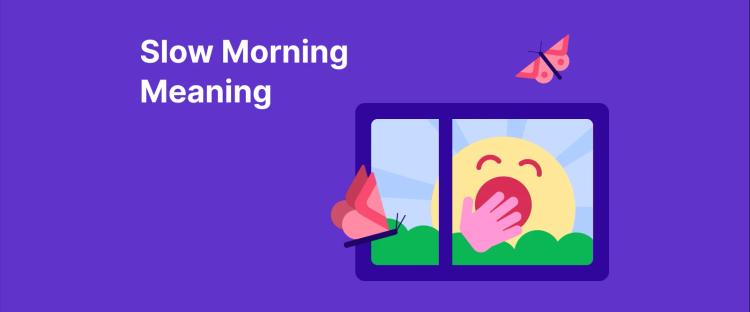Every day is a fresh opportunity for growth, but we often let those moments slip away unnoticed. We get caught up in our routines, overlooking simple ways to expand our minds and skills. What if we could turn mundane activities into chances for self-improvement?
The good news is that there are effortless methods to integrate learning into your daily life without overwhelming yourself. Imagine transforming small pockets of time into powerful opportunities for personal development. Let's dive into seven easy strategies that can help you grow every single day.
#1 Turn Waiting in Line Into a Learning Micro-Session
We spend more than thirty minutes daily waiting in lines, on hold, or traveling. Why not use that lost time to gain new knowledge through brief study sessions?
Josh Kaufman, the author of "The First 20 Hours," demonstrates that brief yet consistent learning sessions produce actual skill growth. Capturing just five minutes of learning time four times a day generates more than 120 hours of education throughout the year.
To study in brief intervals, use applications that help expand your knowledge with hands-on ideas and tips. The Headway app, with book summaries of credible and acknowledged authors, comes in handy for this.
Pro tip: Create a "waiting" folder on your phone with preselected apps and articles to prevent mental hesitation.
#2 Replace Morning Shows with Brain-Fueling Content
Breakfast is prime cognitive time. It's when your mental state is refreshed and alert. You should use this time to absorb beneficial information instead of doomscrolling social media.
Ditch the sitcoms and TikTok content. Instead, opt for TED-Ed YouTube videos, which last only 10 minutes each.
Watching a MasterClass or Skillshare session hosted by top creatives about something that interests you can also kick-start your day. Each video lasts only a few minutes to perfectly fit into any busy schedule.
In "Make It Stick," Brown, Roediger III, and McDaniel demonstrate that learning is most effective when information is distributed over time while maintaining emotional involvement. Starting your day with curiosity keeps your brain in creative mode all day.
#3 Transform Your Commute Into a Mobile Classroom
Driving or commuting daily? That's hours of untapped potential. Using audio content during just half of your daily commute will produce fast and noticeable outcomes.

Here's how to make it count:
Listen to audiobooks or audio summaries. Not sure where to start? Try Cal Newport's "Deep Work" or Angela Duckworth's "Grit."
Listen to The Knowledge Project podcast for interviews with top thinkers, WorkLife with Adam Grant for workplace psychology made simple, and the Hidden Brain podcast for a better understanding of your brain.
"The Power of Habit" by Charles Duhigg states that people maintain new habits when they connect them to their pre-existing routines. Commuting is the perfect anchor. So, all you need, except for a craving for growth, is to buckle up and hit play.
#4 Curate Your Social Feeds for Smart Scrolling
Social media users spend at least two hours daily on the platform. Let's be honest, it's impossible to completely give up scrolling, even temporarily. So, you have two choices: learn to live with the social media habit or adjust it to your daily activities. Then why not use this time to achieve something that will really help you reach your goals?
Turn your social media scrolling time into a casual learning session. Follow accounts that share short educational videos and content. Check out these accounts or find others, but make sure they can feed your curiosity and expand your horizons:
@bigthinkers for expert insights
@sharonsaysso for history
@thepsychologymum for mental health
Cal Newport's 'Digital Minimalism' suggests you don't need to give up social media; just use it intentionally. A few thoughtfully selected follows can modify your algorithm and mental approach.
#5 Keep a Simple Idea Journal for Reflection and Creativity
Growth depends on reflection. Yet, many people avoid reflection because they think it takes too much time and effort. Actually, it does, and we can feel your pain. But gamifying reflection can diminish your inner tension and even procrastination.
The idea generation habit, inspired by James Altucher's "Choose Yourself,” suggests you try this:
Create five new ideas every day, regardless of their quality. Think big AND small!
Record any new knowledge or subjects that interest you for future exploration.
Implementing this method will help you develop a "second brain" system. Tiago Forte defines it as a knowledge management framework that turns your thoughts into action. Read more about this approach from his bestseller "Building a Second Brain."
#6 Combine Chores with Passive Learning
Household tasks don't demand complete mental concentration. Washing dishes, folding laundry, or cleaning the bathroom is a perfect time for casual learning.
Listen to Science Vs or The Art of Charm podcasts.
Listen to 15-minute audio summaries on the Headway app.
Barbara Oakley explains that the combination of active and passive learning in 'A Mind for Numbers' leads to better retention, especially when hands are occupied, but the mind is free.
#7 Wind Down with Nightly Reflection, Not Endless Scrolling
Evening time commonly turns into a time for endless screen scrolling. But the end of the day is better spent in reflection. This 3-minute evening practice grounds you in the present and removes the anxiety of being unproductive. Reflect on these questions:
What did I learn today?
What surprised me?
What can I do better tomorrow?
"The Daily Stoic" by Ryan Holiday advocates performing self-checks through regular, deliberate, and authentic procedures. The practice of reflection will improve your sleep quality while delivering mental clarity upon waking.
Your Genuine Intent Is Your Genuine Fuel
Life changes are not required for personal growth, nor is an early morning wake-up time. The effectiveness of these habits arises from their ability to adapt to your existing routine. The key is intention.
By dedicating yourself to one daily habit this week, you will surpass the achievements of most people. These habits will accumulate over time to produce results that demonstrate their effectiveness.












